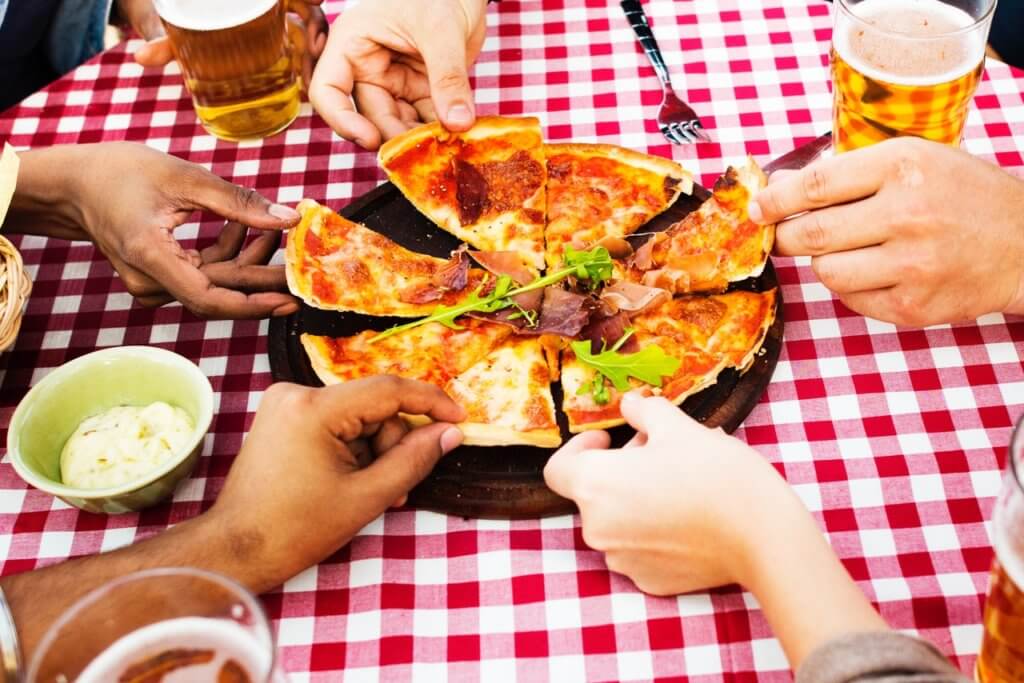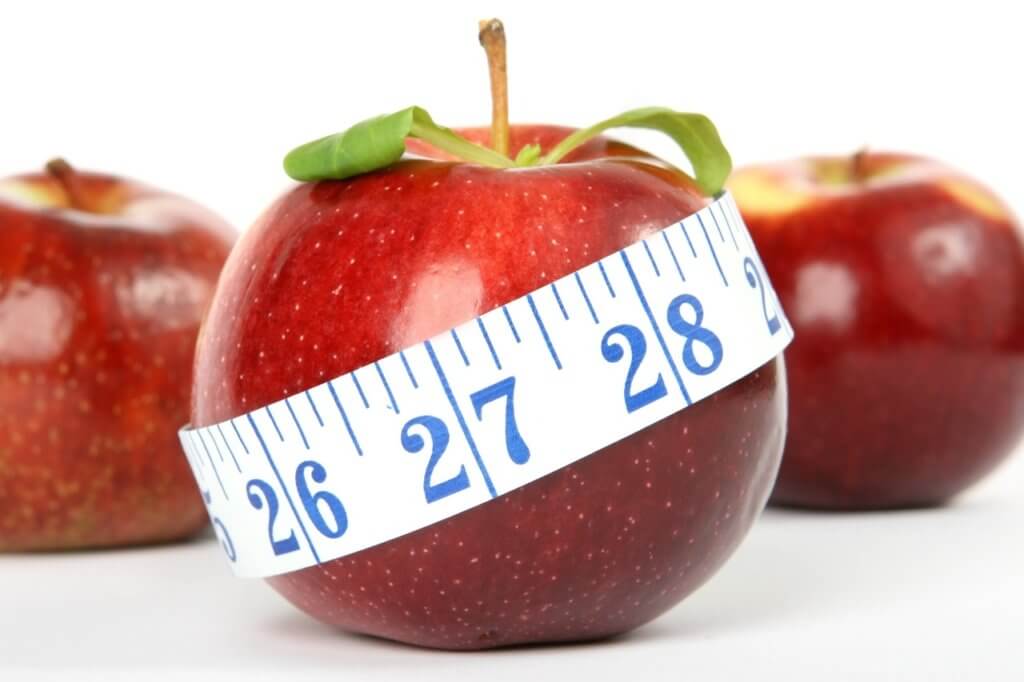Why diets and “fat camps” fail.
Everyone wants to look good to others. In many cultures, this ideal means looking thin and fit. Thus, Americans go on an average of five diets in their life span. That’s because in recent decades obesity rates have soared. In response, the 66-billion dollar diet industry thrives. But at what cost to consumers? Well, it’s complicated. Yet, recent studies about extreme calorie restriction reveal some pretty shocking outcomes.
Many of the diets promoted by this industry promise significant weight loss. Whether their claims are supported by real evidence or not is another story. Indeed, most evidence sways in the other direction, especially when the weight is lost quickly. Fortunately, there have been recent studies that inspire hope for people who want to lose weight. These have more to do with consistent nourishment versus food deprivation.
As you will see, much of the new evidence sheds light on what happens to our physiology when we lose weight quickly. Naturally, this information offers insight into our individual experiences of weight loss and gain. While this may be true, other aspects of the new findings may feel discouraging for some people. Either way, accurate information helps us make educated choices about what actions we take when it comes to losing weight and staying healthy. After all, most of us would rather base our health choices on reality instead of fiction.

Why going to a “fat farm” is counterproductive, and even harmful.
If you’ve dieted before, chances are you understand the frustrations many people have about weight loss. Losing weight is hard. No matter if you try to lose a hundred pounds or just that extra ten or fifteen, it takes a toll on your body and mind.
For this reason, food can feel like an enemy and your body a battleground. Meanwhile, images of slim, attractive models taunt us from the packages of protein shakes and advertisements. The pressure to fit into this ideal keeps many of us fighting to the bitter end. However, the end rarely yields the desired results, at least not for very long. The ad models tell us in no uncertain terms how easy their diet plan is, so we think it must be our fault when we lapse. In reality, it’s quite the opposite of easy. The question is, why is it so hard to sustain weight loss?

Evolution informs your body about how to adjust itself.
Researchers have brought the answer to this age-old question to the forefront in recent years. As it happens, it may not be your fault if you put the pounds back on after restrictive dieting. The fact is, your body is just doing its job, which in this case is trying to keep you from starving to death. Though it may be maddening in this instance, your body looks out for you in the way evolution has taught it to. The difference is, throughout most of human history, slimming down was the last thing your body needed to do. When it senses food restriction, it assumes you are literally starving.
More precisely, your body adjusts your metabolic rate in order to compensate for the decreased calorie intake. Apparently, it didn’t get the memo that you live in a first world country with plenty of food in the fridge. But don’t be too mad at your body; it’s just making a few adjustments to try to keep you safe.
It turns out, your mistake lies not in gaining the weight back, but in choosing a restrictive diet in the first place. Above all, recent research shows us how ill-advised rapid weight loss is. Any way you look at it, the quick-fix “fat camp” approach to losing weight is a bad deal. Flashing a toned torso at the high school reunion next month is simply not worth the consequences, and you’ll see why. Slow and steady is the key.
Learn about Skyterra Welness Retreat’s weight loss approach.
Biology fights back against restrictive dieting.
Recent obesity research underscores the fact that dieters remain at the mercy of their own biology, at least to a certain degree. That is to say, if your body doesn’t want you to lose weight, it will work hard to sabotage your efforts, and not only by slowing your metabolism. In essence, the human body alters its own hormone levels to try to get you back to your original weight. Leptin, an important hormone that regulates hunger, diminishes with dieting. Again, this stems from the body’s response to what it perceives as starvation.
For this reason, sustainable weight loss comes more readily when you eat regularly, but gradually cut back on quantity. As for what foods will help this process, the evidence indicates that most healthy diets that you can stick with work better than restrictive diets.
For instance, a Stanford study revealed that a low-fat diet versus a low-carb diet produced identical weight loss and gain between two control groups. In contrast, the diet with which people lost the most weight was one that was unrestricted except for the requirement of eating whole foods instead of refined foods. Quite simply, a diet that doesn’t feel like a diet seems to work best.

The best “diet” for weight loss is to eat nutritious food regularly.
Easy enough, right? The problem with this mindset for the multibillion-dollar diet industry is that it won’t sell products. To promote business success, they flash us images of someone they feel sure we want to look like alongside their product and we’re hooked. It’s not so much that the people behind restrictive diets are evil and want to sabotage you. It’s more that our culture has gone down a dieting rabbit hole from which it’s not easy to escape. There’s a whole set of rules down there in the dieting wonderland that don’t exactly ring true from a scientific perspective.

The diet industry versus the food industry.
On the other side, we face influencers from the food industry which primes us to eat more. These advertisements temp us with junk food, fast food, processed food, and too much food. It’s like Dr. Seuss’ story about the star-belly sneetches verses the plain-belly sneetches; just when we’ve given in to the promise of one industry, we get pulled to the other conflicting one.
At the same time, we’re told to cut carbs, cut fat, skip meals, drink protein shakes, and exercise until we drop. Then we watch a pizza commercial and order out. These two extremes can leave you in a tailspin. That’s why we sometimes have to step back and make our own rules. It’s not that complicated. We know that to eat healthily, we need to eat fruits and vegetables, healthy proteins, whole grains, and unprocessed food; basically what we were taught in our 1st-grade health class. Of course, implementing it is another story.
Overall, consistent nourishment works better than letting ourselves fall victim to the pressures of the diet and food industries. That said, sometimes we need guidance from people outside of these industries who have sustainable health and wellness in mind. Places like Skyterra Wellness Retreat provide this kind of guidance and follow an anti-fat-farm philosophy, where steady, healthy weight loss is encouraged, and new lifestyle habits explored.

Rapid weight loss comes with a price.
By way of contrast, let’s look at The Biggest Loser reality TV show that recently seemed to validate extreme dieting as an effective weight loss method. A study of the Season 8 contestants reveals a far grimmer picture than what NBC’s viewers witnessed. The researches behind the study showed us for the first time what harm drastic weight loss can cause: namely, a slower metabolism, and diminished hormone levels that regulate hunger, as previously mentioned. In this case, the evidence was impossible to shrug off.
The consequences of the contestants’ extreme weight loss were dramatic and disturbing. After their hard work, they were left with a double whammy: their bodies were certainly thinner, yet they needed far fewer calories just to maintain their new weights, and they were left feeling ravenous. Not a recipe for sustainable weight loss. In fact, almost all of the contestants of Season 8 gained back the weight that they lost. Moreover, some of them ended up even heavier than at the beginning of the show.
A misfortune for the contestants — a gift to science.
The study with the Season 8 contestants was the first of its kind to measure what actually happens to extreme dieters’ bodies over a six-year period after undergoing this type of weight loss. “It is frightening and amazing,” said Dr. Kevin Hall to the New York Times. Dr. Hall is an authority on metabolism at the National Institute of Diabetes and Digestive and Kidney Disease and one of the lead researchers in the study. “I am just blown away.” What shocked him the most was not the fact that their metabolisms slowed, but just how much they did.
“I could tell something wasn’t right with my body. I just knew it was an issue with my metabolism.” —Amanda Arlauskas (Contestant on The Biggest Loser)
When Season 8 began, the contestants had normal metabolisms, even though they were extremely overweight. To be more exact, the number of calories that they burned for a person of their size was what it should be. In contrast, by the end of the season, all of the contestants had lost a massive amount of weight, yet their metabolisms had slowed, not only just a little bit but radically. When all was said and done, their bodies were just not burning enough calories to maintain their smaller sizes. They were thin but predisposed to regain weight. A cruel outcome, indeed.

Fat farms, and programs like the Biggest Loser, produce weakened metabolisms.
Regaining the weight they had lost was deeply disappointing for many of the contestants. Yet, the information gathered by the researchers about what happened to their bodies was a breakthrough for science. As a result, our overall understanding of weight loss has altered.
On a practical level, the study of the contestants’ weight loss and gain has the potential to help many of us learn less harmful ways to lose weight. Until now, many of our preconceptions about dieting have been mischaracterized. More than a few of us engage regularly in anxious fasts and bouts of nibbling rabbit food in order to lose weight quickly, only to watch the needle on the scale creep back up later on. It’s now clear this will defeat the purpose. In the end, It’s the proverbial slow and steady dieters who win the race.
In the long run, extreme dieting does the opposite of what people intend, and then some.
Most certainly, the study sheds new light on the physiology of obesity and weight loss. What’s more, it gives us clarity about what can help people sustainably lose weight, as well as what proves counterproductive. On the other hand, it’s disheartening for dieters to know about this cruel outcome of rapid weight loss. It now makes perfect sense why so many people who diet have to work especially hard to keep the weight off, and often end up gaining it right back. Their bodies want to put the weight back on even if their minds don’t.
Mr. Cahill, one of the Biggest Loser contestants, had to eat a whopping 800 calories less per day than a person of his postseason size with a normally functioning metabolism. Any more calories than this restricted diet would turn to excess fat as if his own body were doing everything in its power to re-establish his preseason weight.

Temporarily thinner, but much hungrier.
What remained most surprising to the researchers was how drastically the contestants’ metabolisms slowed and were never able to rebound. By the end of the study, it became clear that not only was the show’s approach to weight loss ineffective, but it caused real harm. That is to say, the contestants were not able to regain their normal metabolic rates, even after six years. This fact was shocking to scientists. To make matters worse, as the contestants had lost their vast amounts of weight, their leptin levels plummeted.
By the season’s finale, the contestants had virtually no leptin left in their systems. When their weight returned, these levels drifted back up. However, the leptin levels only climbed half as high as they had been when the season began, which left them in a constant state of unsatisfied hunger. No wonder the contestants gained the weight back; their low leptin levels made sure of that.
What lessons can be learned?
Since most of us won’t be competing to win 250-thousand dollars for a reality TV show, we’re not likely to experience such drastic weight loss so quickly. That being said, a broader lesson can be learned. Whether you’re trying to lose 5 pounds or 100, if you do it gradually, you will likely be much better off than the Biggest Loser contestants, prize or no prize. Because gradual weight loss won’t upset your hormones and impede your metabolism, you likely won’t regain the weight so easily.
History of the diet industry.
For most of our country’s history, being too heavy was the exception instead of the norm. Meals had to be farmed, milled, and prepared which took a lot of effort and time. Food was not as readily available as it is now. As it turned out, all that changed after the second world war when transportation and manufacturing produced vast amounts of food with a longer shelf life.
Suddenly, an abundance of overly processed and refined foods began to line the shelves of grocery stores. Additionally, this type of food was cheap and abundant. In the 1970s, obesity began to become a real problem for many Americans. As a result, the modern diet industry was born.

America’s obesity problem now affects more than a third of adults. Though we spend billions on diet products and programs, pills, and fads, people are working against an underlying biological reality that with rapid weight loss comes a metabolic slowing down. Even so, many people are unaware of this aspect of dieting and continue to go to “fat farms” or go on extreme diets where they are encouraged to lose weight quickly.
The importance of lifestyle modification.
The information collected from these studies shows us that restrictive dieting will only sabotage an individual’s weight loss efforts. “I think the biggest reason that diets fail people,” said Dr. Hall to Netflix’ Explained producers, “is that they focus solely on the weight loss component.” In other words, he suggests that a more promising approach is to modify lifestyle and behavior. This way, people can assess what foods and habits work best for them in the long run.
In the final analysis, we as a culture need to get away from the “fat farm” mentality. Who wants to end up having to eat fewer calories while feeling hungry all the time? It might be better off carrying the extra pounds than be caught in this no-mans-land of dieting purgatory. Fortunately, there are other ways to lose weight safely.
Places that offer alternative approaches to weight loss are few-and-far-between. Everyone wants it to happen right now. In a society that tends to want all or nothing, slow and steady might be a lot to ask. But it can’t hurt to try. If possible, we might as well enjoy our food while our metabolisms are still strong, and whittle away at weight loss. Our bodies will thank us later.

How to lose weight sustainably.
Skyterra Wellness Retreat promotes a pro-nourishment, anti-diet philosophy when it comes to weight loss. Experienced, compassionate staff help people develop healthy, sustainable eating, stress-management and fitness habits for life.








